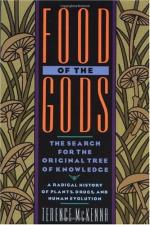
|
| Name: _________________________ | Period: ___________________ |
This test consists of 15 multiple choice questions and 5 short answer questions.
Multiple Choice Questions
1. What group had proven itself unable to resist involvement in the world narcotics trade?
(a) The CIA.
(b) The French secret service.
(c) All of these.
(d) Opus Dei.
2. What myth or story is explained in this chapter?
(a) The one of Glaukos.
(b) The one of Polyidos.
(c) The one of Persephone.
(d) The one of King Minos.
3. What was the reason for the American government to make the emphasis off of heroin and onto cocaine?
(a) None of these.
(b) Cocaine was proven to be less addictive.
(c) The war was lost in Vietnam and a retraction was done from S.E Asia.
(d) Cocaine had healing properties.
4. What did the sugar craze promote and cause to further promote itself?
(a) Coffee.
(b) Tea.
(c) All of these.
(d) Cocoa.
5. When was cocaine isolated for the first time?
(a) 1901.
(b) 1857.
(c) 1859.
(d) 1870.
6. What did the Maya use cacao beans for?
(a) Trade.
(b) Both of these.
(c) Neither of these.
(d) Currency.
7. Who was famed to be the father of chemotherapy?
(a) Paracelsus.
(b) Parcelsus.
(c) None of these.
(d) Plato.
8. Why what year was tobacco routinely smoked with opium in China?
(a) 1654.
(b) 1794.
(c) 1693.
(d) 1793.
9. Which was the most important of the trading companies?
(a) The East British Trading Company of the Indies.
(b) The East British-India Trading Company.
(c) The British East India Company.
(d) The East India Trading Company.
10. What is the most powerful of all hallucinogens?
(a) DMT.
(b) MDA.
(c) MDMA.
(d) Psilocybin.
11. Demeter was the goddess of what, according to the Greeks?
(a) Neither of these.
(b) Poppies.
(c) Both of these.
(d) Grain.
12. Why were the stimulant properties in coffee and tea the ideal drug of the industrial revolution?
(a) They provided an energy lift.
(b) Neither of these.
(c) They enabled people to work at repetitive tasks.
(d) Both of these.
13. What was the first and most immediate payoff of the New World?
(a) Opium.
(b) Corn.
(c) Gold.
(d) Tobacco.
14. What is in the typical American diet?
(a) Sugar.
(b) Meat.
(c) All of these.
(d) Alcohol.
15. Why did the Japanese produce vast amounts of opium and heroin for distribution in China?
(a) To create a distraction for the people.
(b) To gain a profit.
(c) To make the Chinese population too weak to resist occupation.
(d) To manipulate the government into fixing the problem.
Short Answer Questions
1. During the golden age of Athens, how many of the population were slaves?
2. Why is the legalization of marijuana a complex issue?
3. Where did the Goddess survive long after the dominator style had been in place everywhere else?
4. On what day was tobacco first introduced into Europe?
5. What was the opium tincture's name?
|
This section contains 455 words (approx. 2 pages at 300 words per page) |

|




